LinkShare
- 86% find critical thinking skills lacking in the public at large.
- 60% of respondents reported not having studied critical thinking in school.
- Only about 55% reported that their critical thinking skills had improved since high school.
- 90% think courses covering critical thinking should be required in K-12 education
- Mastodon
- Threads
- Teacher Familiarity with AI: The survey shows a significant increase in teacher familiarity with AI tools, particularly ChatGPT. In just over a year, the percentage of teachers familiar with ChatGPT rose from 55% to 79%.
- Weekly Use of ChatGPT: Approximately half of U.S. teachers and K-12 students use ChatGPT on a weekly basis, indicating a rapid adoption of AI in education.
- Positive Views on AI: The majority of teachers (59%) and students (70%) hold positive views on AI, with many seeing its potential to boost creativity and support learning.
-
Uses of AI in Education: Teachers are using AI for various purposes, including generating ideas for classes, lesson plans, student worksheets, and creating quizzes or tests. AI is also being used to help with literacy and math achievement, which are at their lowest levels in two decades.
-
Training and Support: Despite the growing adoption, only 25% of teachers reported receiving training on AI chatbots, and a significant number (32%) cited lack of training as a major reason for not using AI.
-
Equity and Access: The survey suggests that AI adoption is more prevalent among minority groups, with Black and Hispanic parents expressing greater support for AI use in schools.
-
Concerns and Challenges: While AI is seen as a valuable tool, concerns about its impact on cheating and the need for careful consideration of its implementation remain.
-
Introduction
- Overview of the need for a new assessment design framework.
- Contextual background on current assessment practices.
-
Core Principles
- Validity: Ensuring assessments measure what they are intended to.
- Reliability: Consistency of assessment results over time.
- Fairness: Equal opportunity for all test-takers.
- Practicality: Feasibility of implementation in various educational settings.
-
Framework Components
- Learning Objectives: Clear, measurable goals for student learning.
- Assessment Methods: Diverse approaches to evaluate student performance.
- Formative Assessments
- Summative Assessments
- Performance-Based Assessments
- Scoring and Feedback: Strategies for providing meaningful feedback.
- Data Use: Utilizing assessment data to inform instruction and improve learning outcomes.
-
Implementation Strategies
- Professional Development: Training educators on effective assessment design.
- Collaboration: Encouraging teamwork among educators to develop and refine assessments.
- Technology Integration: Leveraging digital tools to enhance assessment practices.
-
Challenges and Solutions
- Resource Constraints: Addressing limitations in time, funding, and materials.
- Resistance to Change: Overcoming reluctance to adopt new methods.
- Equity Issues: Ensuring assessments are accessible to all students.
-
Conclusion
- Recap of the importance of a robust assessment design framework.
- Call to action for educators and policymakers to embrace and implement the new framework.
- Microsoft and Khan Academy have announced a new partnership to enhance the role of AI in education.
- Microsoft is enabling Khan Academy to provide free access to Khanmigo for Teachers to all US educators.
- The partnership includes efforts to improve AI-powered math tutoring with a new open-source small language model.
- The collaboration aims to bring high-quality education experiences to more learners by integrating more Khan Academy content into Microsoft products like Copilot and Microsoft Teams for Education.
- The partnership aims to address challenges such as accuracy, overreliance, cost, connectivity, efficacy, and support for educators.
- Khan Academy’s content library covers a wide range of subjects from PreK-12 through early college.
- Khan Academy has added a new “Share to Teams” feature in its platform to enable easy sharing and application of Khan Academy content in student assignments.
- Khanmigo for Teachers is powered by Azure OpenAI Service and is currently available in the US.
AI and Critical Thinking #EduSky
This study, AI Tools in Society: Impacts on Cognitive Offloading and the Future of Critical Thinking, by Michael Gerlich landed on Linked In. Alas, the link to the study (Update: That link should work now) didn’t work for me. I dropped the screenshot of page 1 into ChatGPT, and voila, got the abstract:
The proliferation of artificial intelligence (AI) tools has significantly transformed various aspects of life, but their impact on critical thinking remains underexplored. This study examines the relationship between AI tool usage and critical thinking skills, with a focus on cognitive offloading as a mediating factor. Using a mixed-method approach, 666 participants from diverse demographics were studied through surveys and interviews.
Findings reveal that frequent AI tool usage negatively correlates with critical thinking abilities due to increased cognitive offloading. Younger participants showed higher dependence on AI tools and lower critical thinking scores, while higher education levels correlated with better critical thinking. The research emphasizes fostering critical engagement with AI technologies to mitigate cognitive impacts, offering actionable recommendations for educators and policymakers.
That sure sends a message, doesn’t it? On BlueSky, Matthew Facciani makes this point:
While AI can enhance efficiency in certain areas, over-reliance on these tools risks diminishing essential skills like problem-solving and analytical reasoning. My concern is that we may be fostering a generation with weaker critical thinking abilities, leaving them more susceptible to manipulation.
My response?
I am afraid that if you read up on critical thinking in the US (and you may already have), you will find anemic instruction on CT has had this result, not withstanding AI.
To support my assertion, I cite this TCEA blog entry on Critical Thinking for Leaders for Leaders and Educators that includes these stats:
Those stats appear in a survey linked at the blog entry above, and are the lead-in to the rest of the entry about why critical thinking is so important. Check it out.
Page 1
Here’s the image shared via LinkedIn for your consideration:
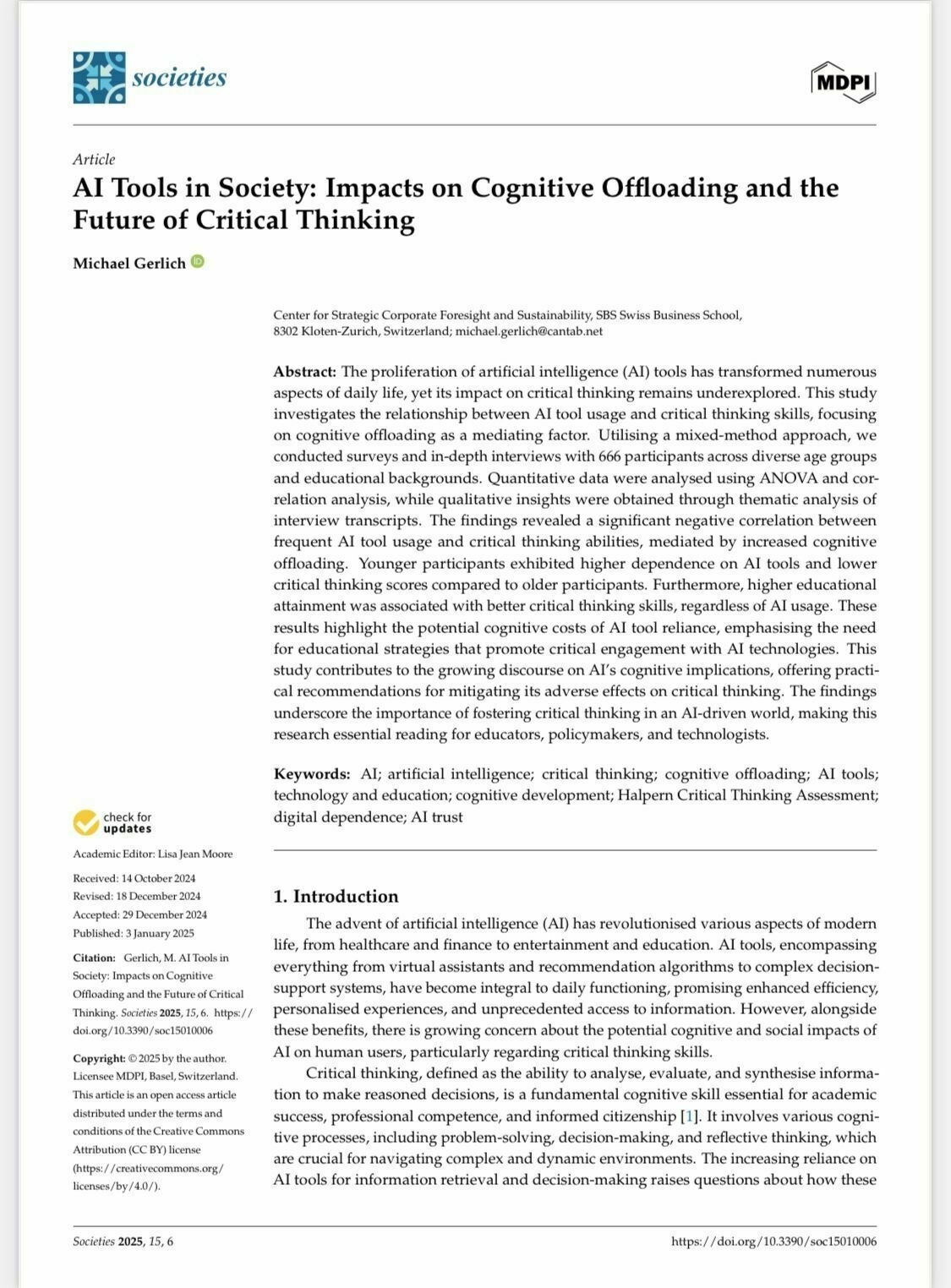
via Linked In Post
Five Steps to Transform Videos into Lessons #AI #NapkinAI
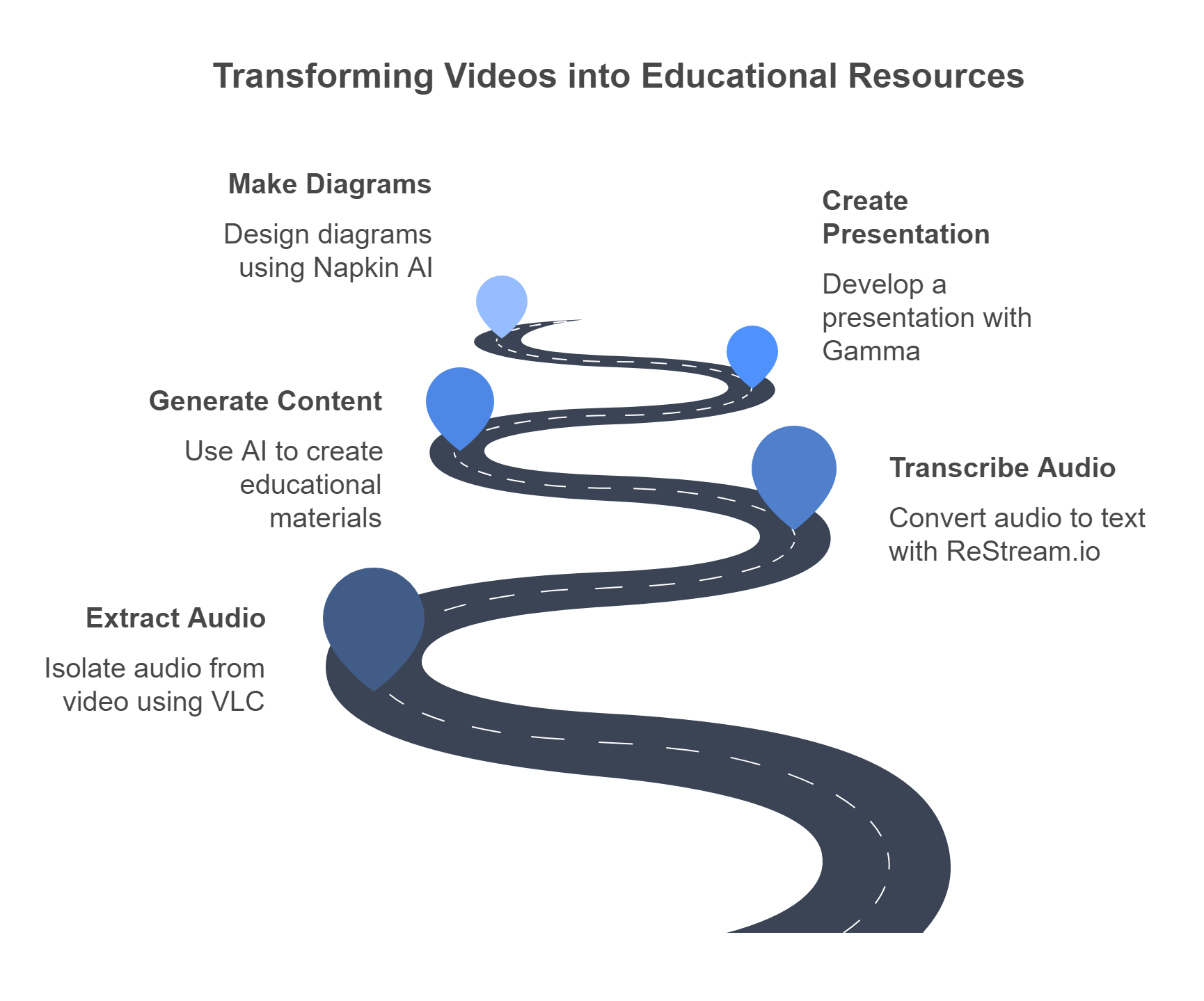
Turn your classroom videos into dynamic teaching tools with this practical guide to transforming video into lessons! In today’s digital classroom, every recorded lesson can become a goldmine of learning resources. This practical guide shows you how to transform your classroom videos into powerful teaching tools that engage students across multiple platforms and learning styles. Whether you’re teaching kindergarten or college, these simple steps will help you create accessible, reusable content that maximizes your teaching impact. Here are five steps to help you transform videos into lessons!
Read more
AI Detection

The recent rise in artificial intelligence systems, such as ChatGPT, poses a fundamental problem for the educational sector. In universities and schools, many forms of assessment, such as coursework, are completed without invigilation. Therefore, students could hand in work as their own which is in fact completed by AI. Since the COVID pandemic, the sector has additionally accelerated its reliance on unsupervised ‘take home exams’.
If students cheat using AI and this is undetected, the integrity of the way in which students are assessed is threatened. We report a rigorous, blind study in which we injected 100% AI written submissions into the examinations system in five undergraduate modules, across all years of study, for a BSc degree in Psychology at a reputable UK university.
We found that 94% of our AI submissions were undetected. The grades awarded to our AI submissions were on average half a grade boundary higher than that achieved by real students. Across modules there was an 83.4% chance that the AI submissions on a module would outperform a random selection of the same number of real student submissions.
Source: Scarfe P, Watcham K, Clarke A, Roesch E (2024) A real-world test of artificial intelligence infiltration of a university examinations system: A “Turing Test” case study. PLoS ONE 19(6): e0305354. doi.org/10.1371/j…
See You on BlueSky #EduSky #edupeeps (Updated: 12/5/24)
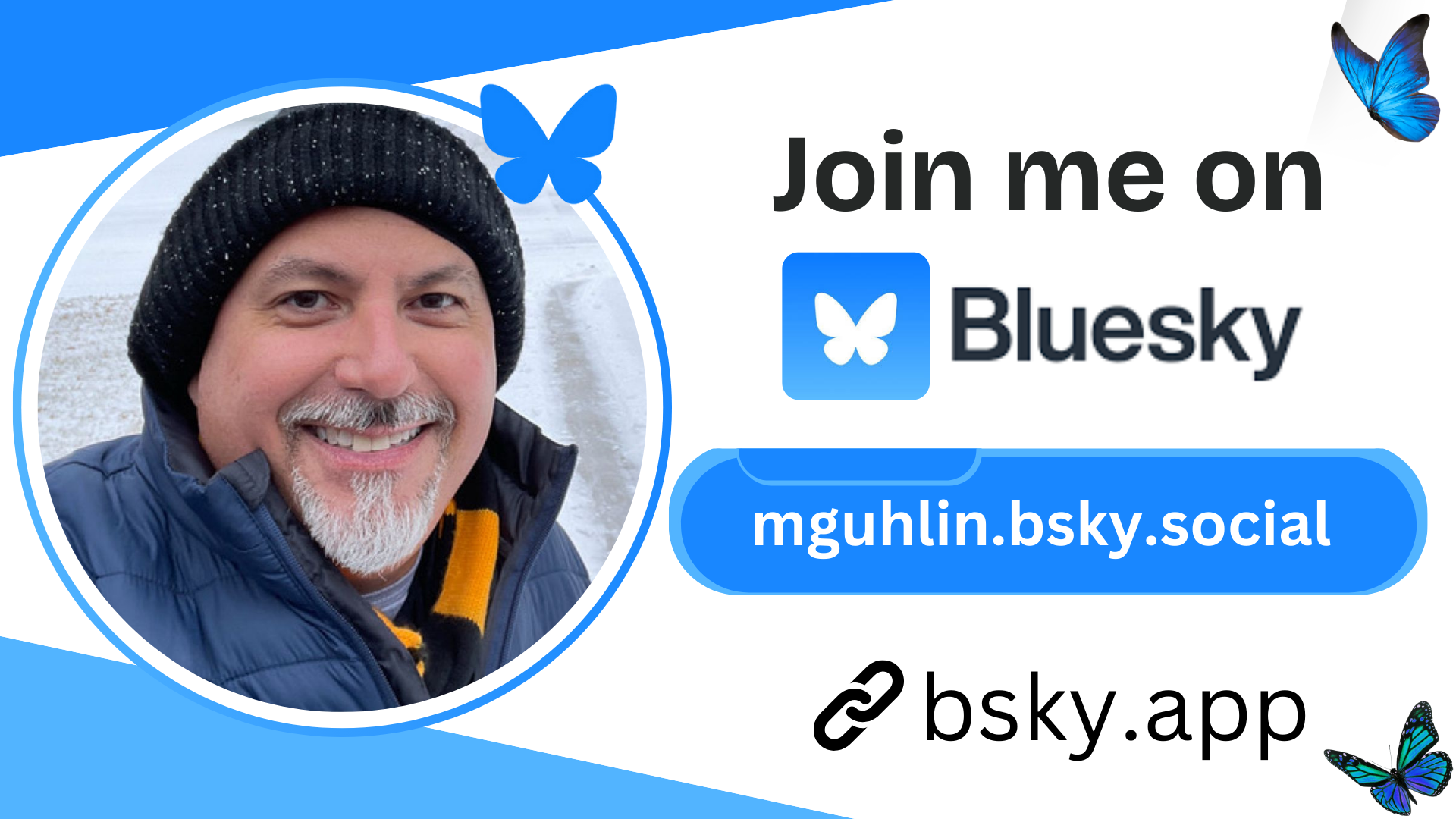
Wow, I’ve jumped into BlueSky with both feet, and learned about #EduSky. It’s crazy to be joining yet another social network, but no matter what I do, I can’t seem to get away from them. That’s because everyone I know appears on any one of the following:
And, now, I’m on BlueSky. My profile is mguhlin.bsky.social
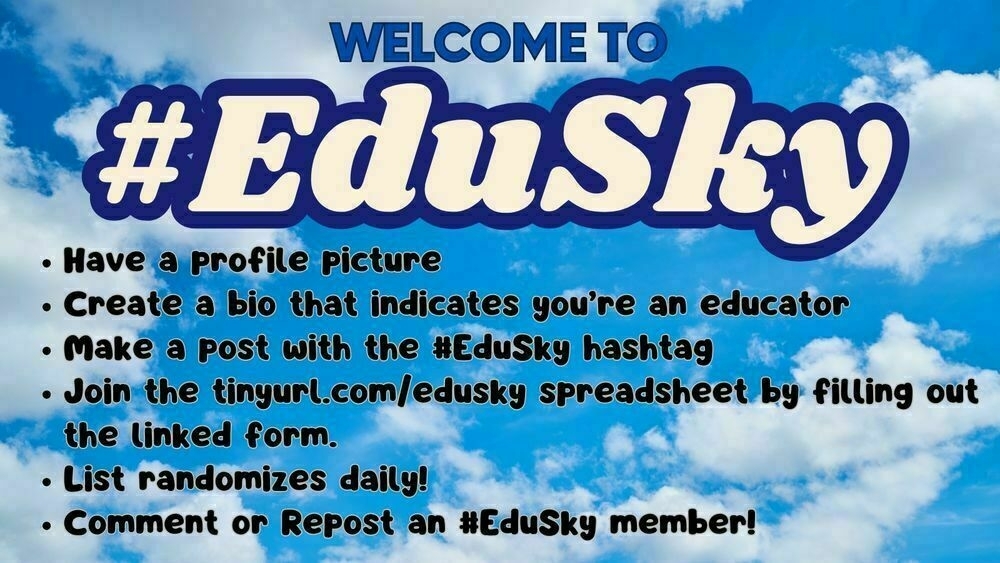
Also, to join EduSky, I added my name to the EduSky spreadsheet via this form.. It certainly appears to be taking off.
Here’s a nice image Naomi Louise shared:
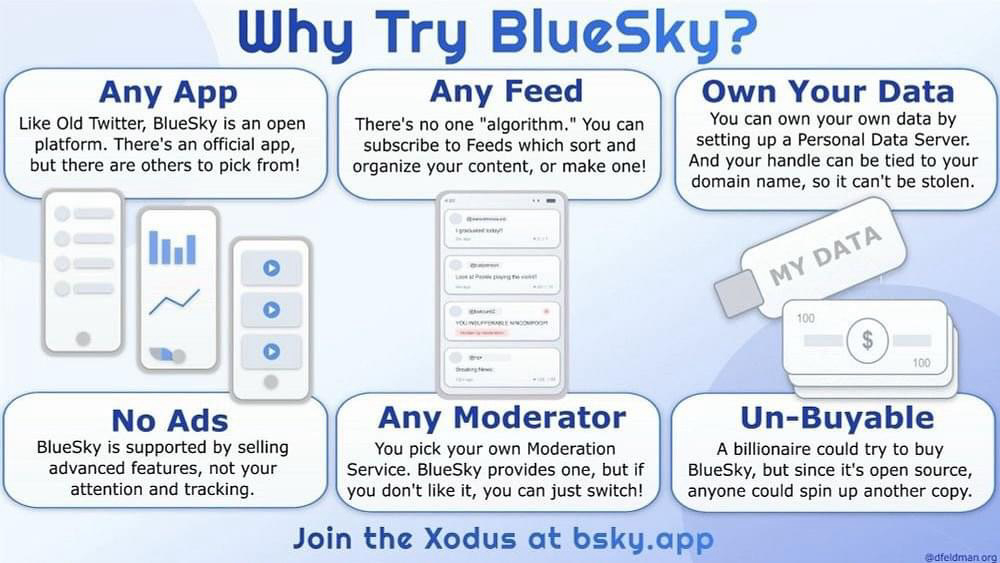
Starter Packs
Be sure to check out the available starter packs for BlueSky. It’s an easy way to get started. Want to see what’s getting posted on BlueSky live? Watch the FireSky page..
ClearSky To See What Lists You are On
As more of us join BlueSky, you can use a tool like ClearSky to find out what lists people are putting you on.
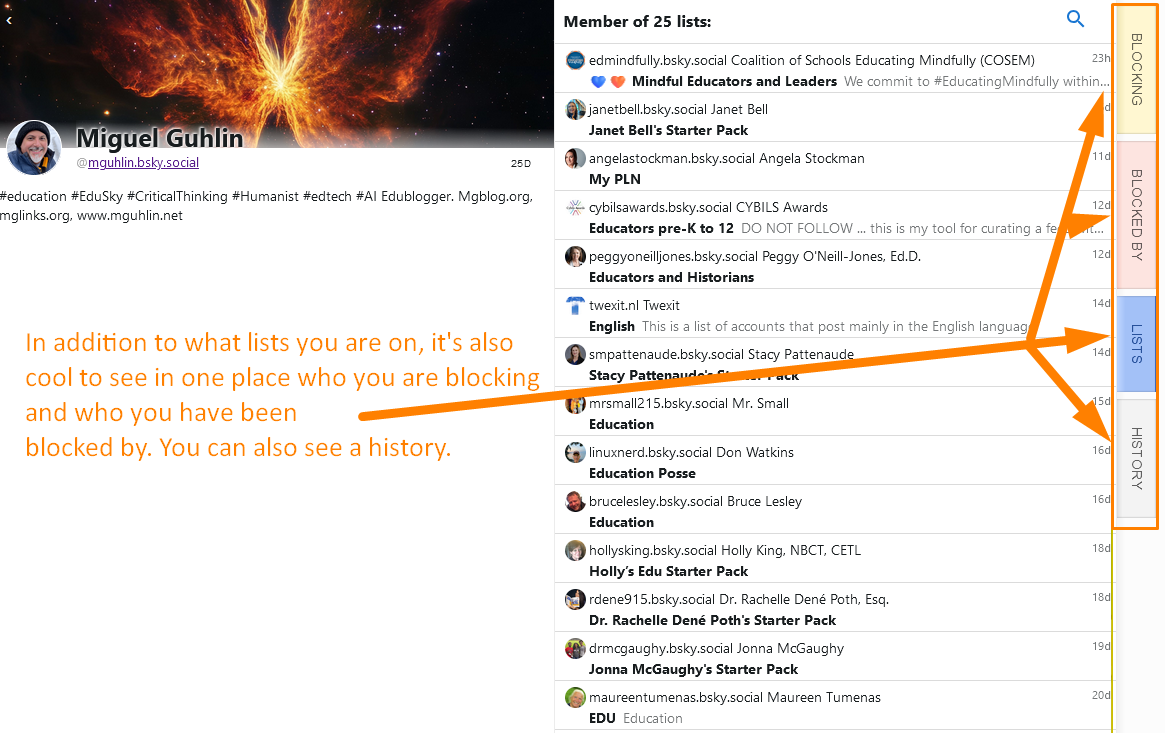
And, no, there’s no hope that I’ll abandon the other platforms for now. Just glad to be somewhere I can connect with EduPeeps again!
Linkshare: Teaching and Learning with #AI Summit #education #teaching #tcea
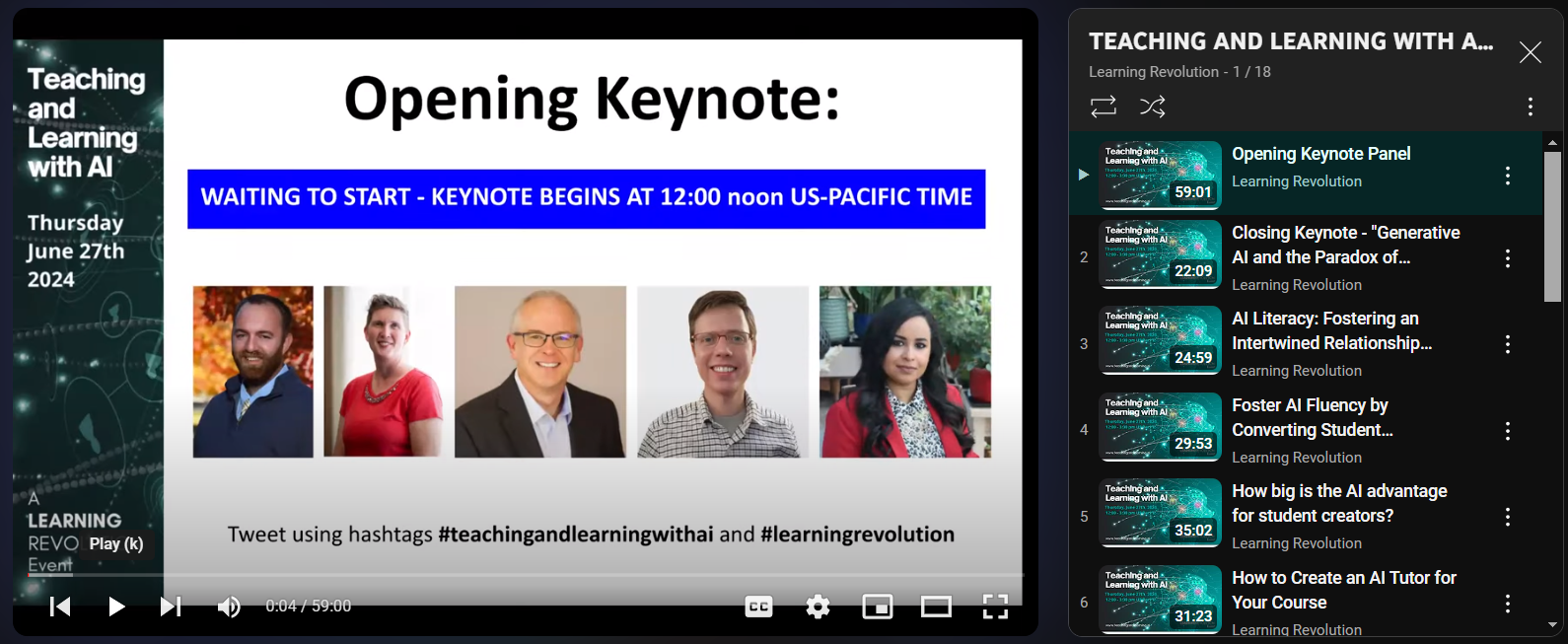
The Teaching and Learning with AI Summit took place last week, and I thought I’d share the link to all the videos via YouTube. I am working my way through the videos.
Watch and learn from these amazing folks!
They even offer an evaluation form that produces certificates of attendance.
Did You Know? Upcoming Event
TCEA will be hosting an AI for Educators Conference 2024. More information appears below:
Curious to know how schools and districts successfully implement artificial intelligence (AI) in educational settings? Eager to get real-world examples of how AI is personalizing learning, increasing student engagement, improving processes, increasing productivity, and more?
Discover how AI can benefit you at the AI for Educators Conference (AI for Edu)!
At AI for Edu, expert speakers will share insights, best practices, and success stories on how AI is transforming how we teach, learn, and conduct business.
Classroom teachers, librarians, instructional coaches! Find out how AI can enhance your students’ learning experience and save you time. CTOs, technology directors, administrators! Discover innovative ways to integrate AI safely into your school system. Marketing and communication professionals! Explore how AI can enhance your processes, messaging, and productivity.
Three Reasons to Attend AI for Edu:
Gain Comprehensive Understanding. Leave with knowledge of AI best practices and implementable ideas for harnessing powerful AI to transform education. Learn from Trusted Experts. Hear from experts in the field of educational technology, including classroom educators, technology leaders, and other education professionals. Position Yourself as a Thought Leader. Stay on top of the latest trends and advancements in AI and differentiate yourself from others! Set yourself up as a leader while providing the best education to students
Don’t miss this opportunity to connect with like-minded professionals and expand your knowledge of the latest AI trends and strategies in education at AI for Edu. Register now to secure your spot in this must-attend virtual conference. All sessions will be recorded and available for attendees after the event.
Registration Fee: $149
Included with Registration: Free, one-year auto-renewing membership included 30-day access to all sessions (recorded) after the conference
Got Google EDU AI yet?
Google makes announcement about Gemini AI available for purchase…I am curious how many schools have purchased AI via Google for their teachers and older than 18 students?
Announcement
Starting May 23rd, education institutions can add Gemini for Google Workspace to their existing Workspace for Education edition for users 18 years and older by purchasing one of the following add-ons:
Gemini Education is a lower price offering to help education institutions get started with generative AI in Workspace, with a monthly usage limit. Through the Admin console, Admins can learn more about how people in their domain are trending towards their usage limits.
Gemini Education Premium includes everything in Gemini Education, plus additional advanced features like AI-powered note taking and summaries in Meet, AI-enhanced data loss prevention and more coming soon. This add-on provides full access and usage of generative AI tools in Workspace. via Google
Podcast #1: MakerMaven #stem #edtech #education
Listen to Matt Garcia, MakerMaven.net
At the TCEA Elementary Technology Conference, I had the chance to visit the Exhibit Hall and chat with Matt Garcia from MakerMaven.net. He shared a little about MakerMaven.net. The booth was full of exciting STEM friendly resources.
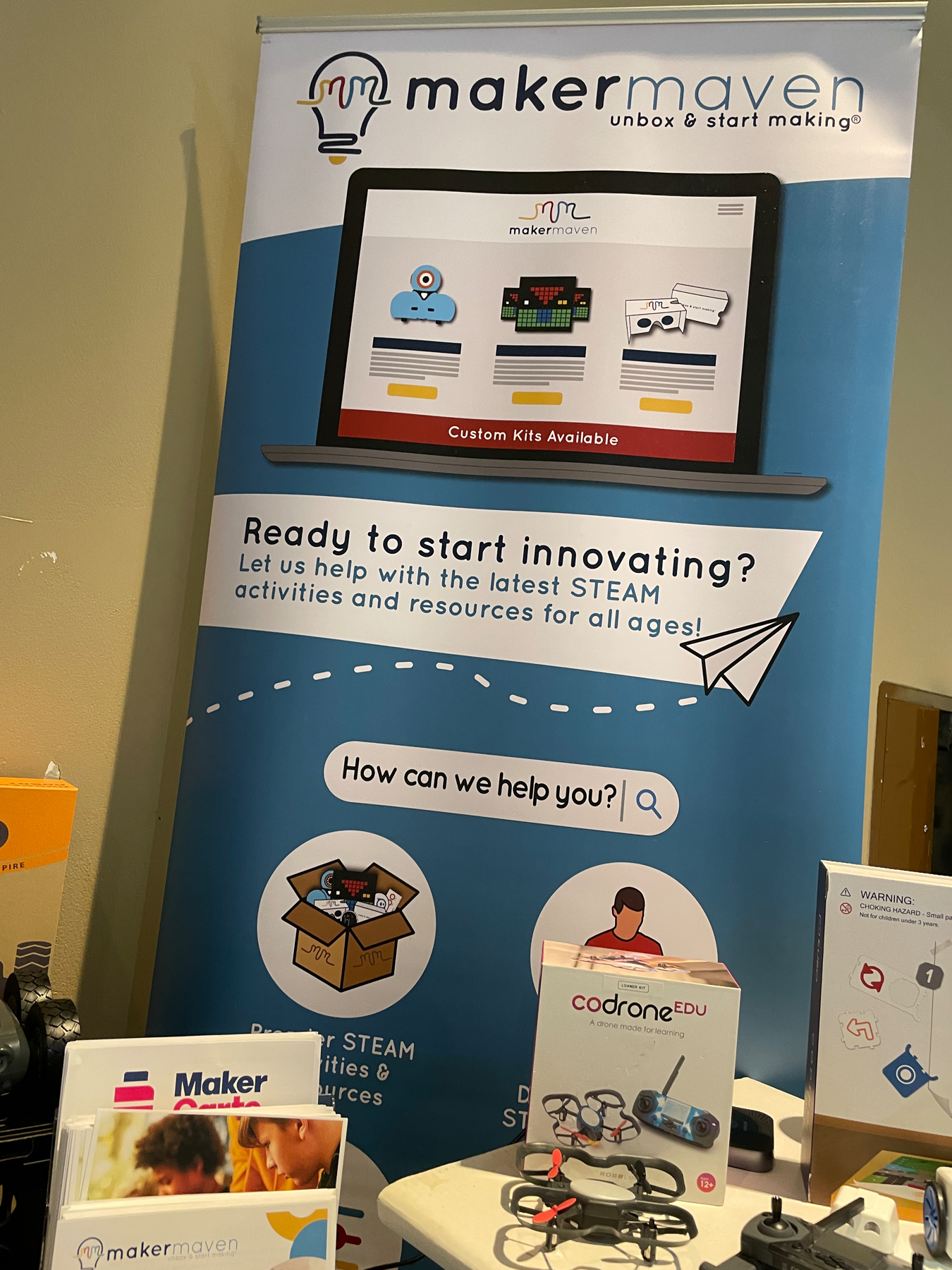

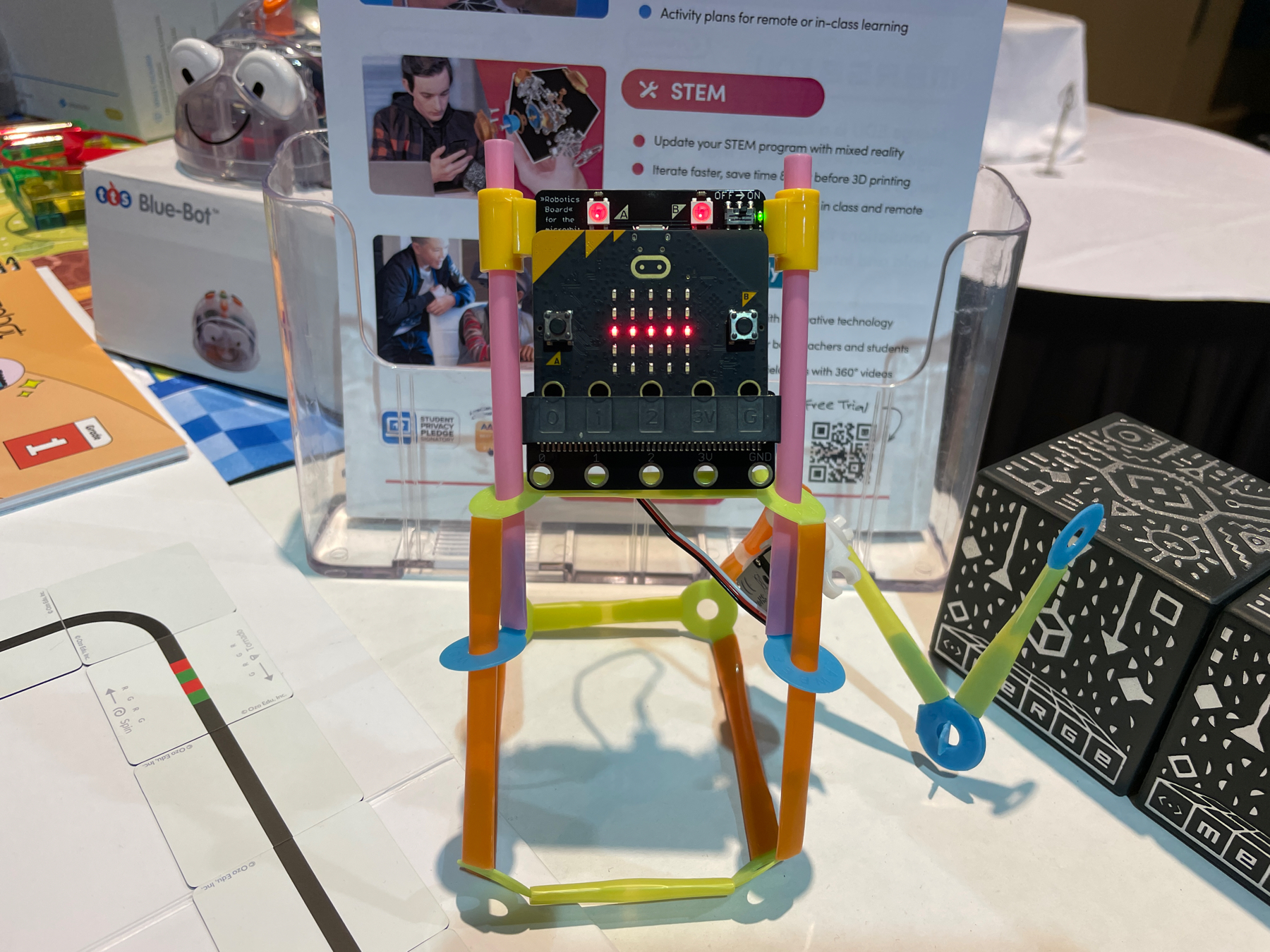
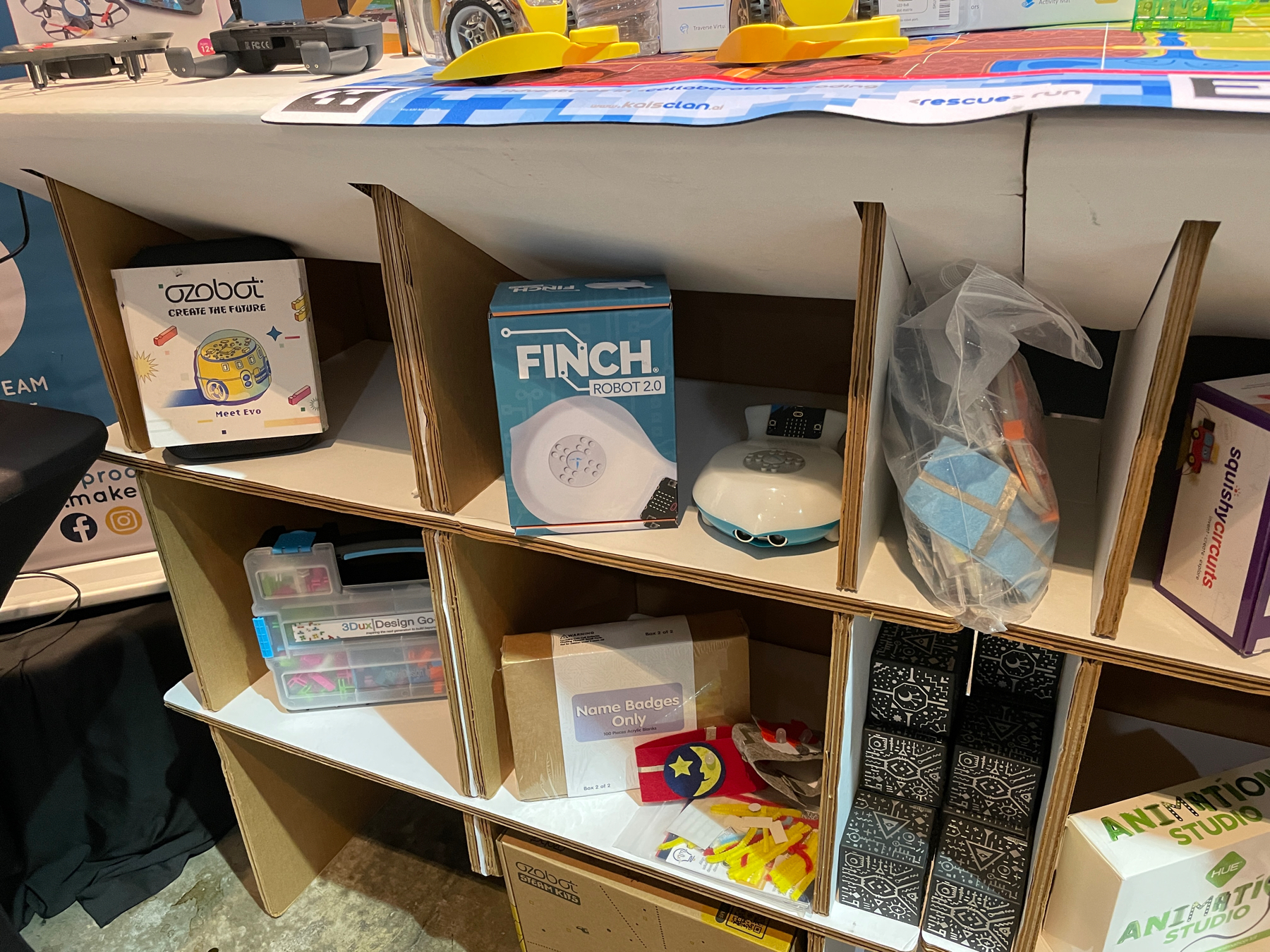
Linkshare: Walton Family Foundation on AI Teacher Perspectives
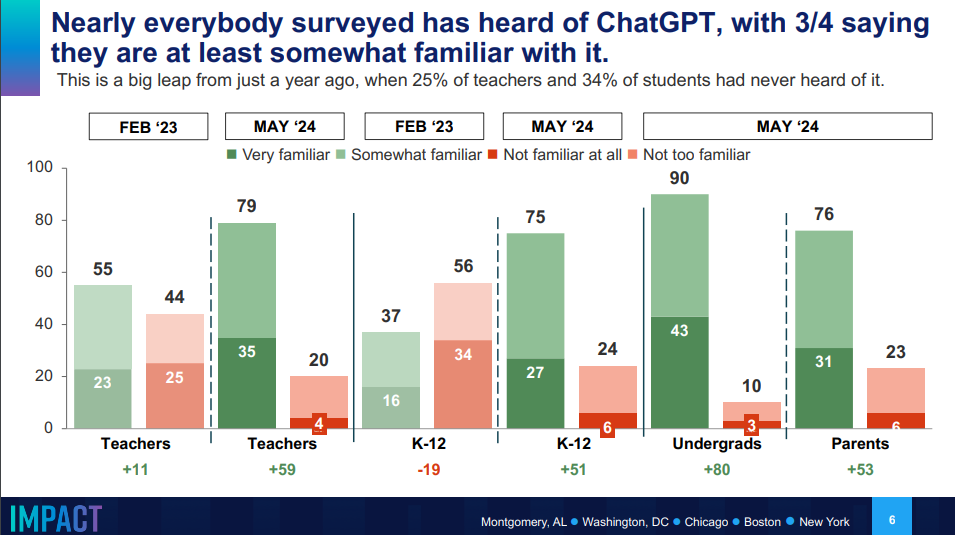
Lots of great visuals in this report. Be sure to view the PDF linked below.
About the Report
The report from the Walton Family Foundation highlights the results of a survey that explores the perspectives of teachers on the potential of AI to enhance classroom creativity and support learning.
Read the full results via this PDF document link.
Key Findings
Consider signing teachers up for TCEA’s inexpensive (<$45) course on ChatGPT for Educators or Artificial Intelligence Educator.
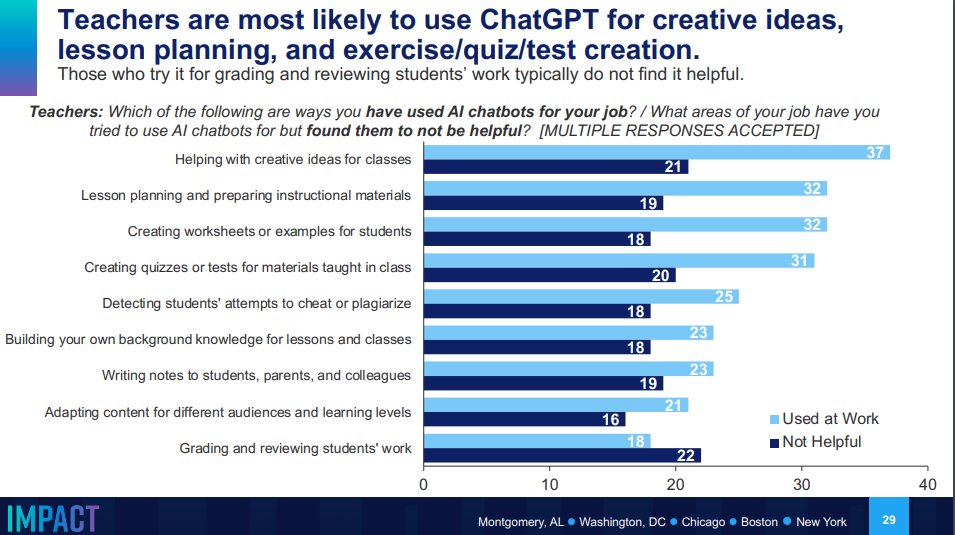
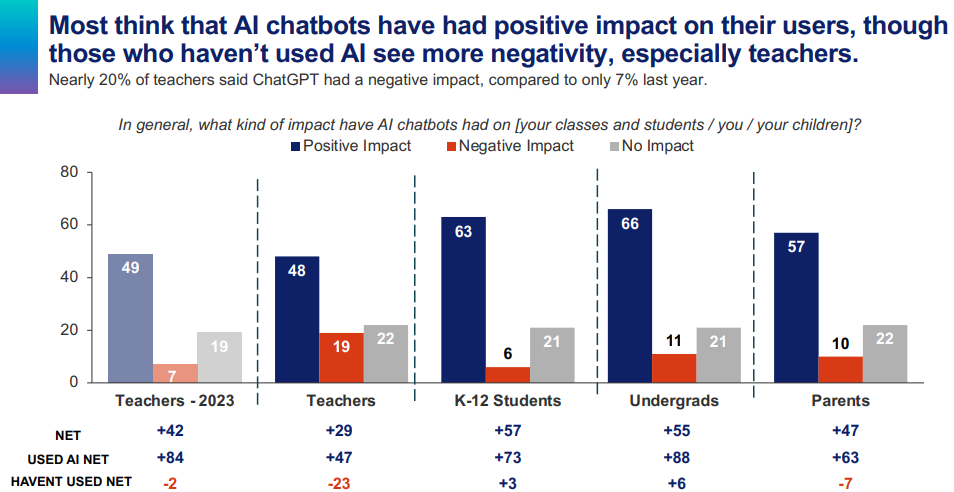
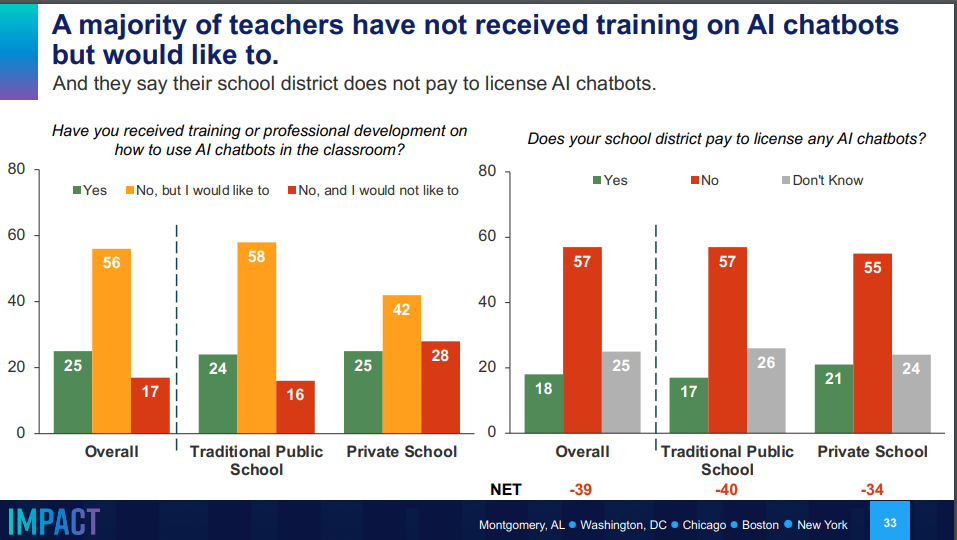
Overall, the report indicates that AI is gaining popularity in education, with teachers and students embracing its potential to enhance learning and creativity. However, it also underscores the need for proper training and support to ensure effective integration of AI in the classroom.
Reflection Question: Should schools be striving to integrate AI into the classroom or not? Share your thoughts via email and see them reposted here with a response. Email me at mguhlin@gmail.com.
Tools Available
| Linked Title | Description |
|---|---|
| The Rori Math Hint Generation Chatbot | Identifies student mistakes and provides hints to help them solve math problems. Aims to be integrated with online math assignments for constant support. |
| Personalized Writing Tutor for Analytic Writing | Gives personalized feedback on student writing to improve coherence, tone, and effectiveness. Developed by an experienced teacher. |
| Early Literacy Tool | Helps create support plans and choose interventions for early literacy issues. Uses the Doing What Works Library for a comprehensive approach. |
| Student Portfolio Assessment Tool | Assists educators in identifying top skills in student assignments to prepare students for future jobs. Created by the Mastery Transcript Consortium. |
| School Comparison Bot | Allows parents to compare schools based on academics, attendance, and other factors. Developed for the Cheltenham School District but adaptable to others with available data. |
Where Is Your District on Implementing Artificial Intelligence? #tcea #tceajmg #AI
🚀 Is your district ready for AI? Discover how TCEA can help with AI implementation and ensure your staff and students harness its full potential.
LinkShare: AI Assessment Design Framework
This has some intriguing ideas and visuals worth exploring regarding AI:
…a framework, “Stop Grading Essays, Start Grading Chats” © includes preparation activities to kickstart student thinking before AI use, mechanisms for developing AI Literacy, evaluation windows for assessing content-specific understandings within the context of AI usage, and a reflective assessment that stresses the importance of critically reviewing AI-generated content.
via Mike Kentz
A Diagram
This diagram was me playing around with an outline (see below) of Kentz' work. It’s NOT the infographics or diagrams he put together, which you will want to see on his website. No, this diagram was me playing around with Mermaid code. Too much fun!
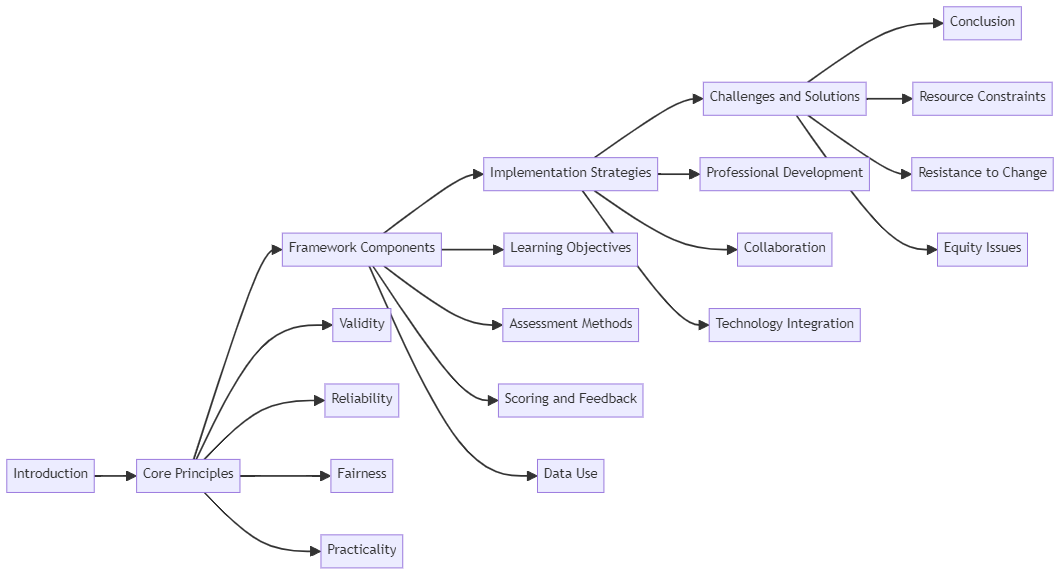
AI Summary
Here is an outline summarizing the content from the provided source:
A New Assessment Design Framework
Sources [1] https://mikekentz.substack.com/p/a-new-assessment-design-framework
Linkshare: ChatGPT EDU for Higher Ed
ChatGPT Edu, a version of ChatGPT built for universities to responsibly deploy AI to students, faculty, researchers, and campus operations. Powered by GPT-4o, ChatGPT Edu can reason across text and vision and use advanced tools such as data analysis. This new offering includes enterprise-level security and controls and is affordable for educational institutions.
via OpenAI
Online Course: Blended Learning #tcea #tceajmg
📚 What is Blended Learning? It’s a mix of online and in-person activities, giving students control over their learning. Become a Blended Learning expert with our course and accelerate your teaching!
👉 tcea.org/courses/blended-learning/
Online Course: Bitmoji Educator #tcea #tceajmg
🎉 Boost engagement with our Bitmoji Educator course! Learn to create a Bitmoji classroom that enhances student learning and builds community. Perfect for virtual and face-to-face teaching!
Online Course: Assessment-Based Feedback Tools #tcea #tceajmg
🔧 Enhance your feedback skills with our ‘Assessment-Based Feedback Tools’ course! Discover digital tools and strategies that improve feedback, retrieval practice, and more. Maximize your impact with high-effect size techniques!
👉 tcea.org/courses/assessment-based/
Online Course: Artificial Intelligence Educator #tcea #tceajmg
🚀 Embark on a 12-hour journey with the ‘AI Educator’ course! Tailored for K-16 educators, learn to integrate AI into classrooms and enhance teaching practices. Join us in revolutionizing education with AI!
👉 tcea.org/courses/artificial-intelligence-educator/
Online Course: Advanced Streaming with OBS #tcea #tceajmg
🎥 Elevate your virtual teaching skills! Join our course to learn how to deliver engaging, high-quality content just like top streamers. 🌟 Enhance your students' digital experience.
LinkShare: StoryDice
Thanks to a colleague for introducing me to Dave Birss' StoryDice. Check it out at https://davebirss.com/storydice/
Now the classic story ideas generator is available for free in your browser. In this version there’s over 50 options for each dice – with more options being added as I get around to drawing them.
As well as being a fun diversion for parents and kids, this is also a handy tool for writers looking for inspiration to create their own story ideas. As a creative exercise, it’s a brilliant way of giving your imagination a workout. And because your imagination is where your ideas come from, that’s a great mental muscle to flex. The more practice you put into turning the prompts into stories, the better you will get at storytelling and articulating your own ideas.
The tool below is fully functional but if you want a stand-alone version, just click on the button at the bottom of the page. (It may look a bit crushed on a smartphone screen. If that’s the case, scroll down and click that button when you’re ready.)
Are you sitting comfortably? Let’s begin…
Read the TCEA blog entry by Diana Benner, Spark Creativity in the Classroom with StoryDice
LinkShare: Six STEM Tweets #tceajmg #STEM
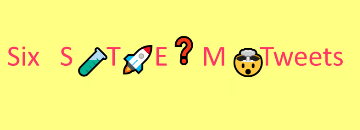
🚀 Stay updated with the latest in engineering, tech, and science! Subscribe to Six STEM Tweets for top insights delivered to your inbox. Curated by Harshal Chhaya.
👉 sixstemtweets.beehiiv.com
LinkShare: Improving AI-powered math tutoring
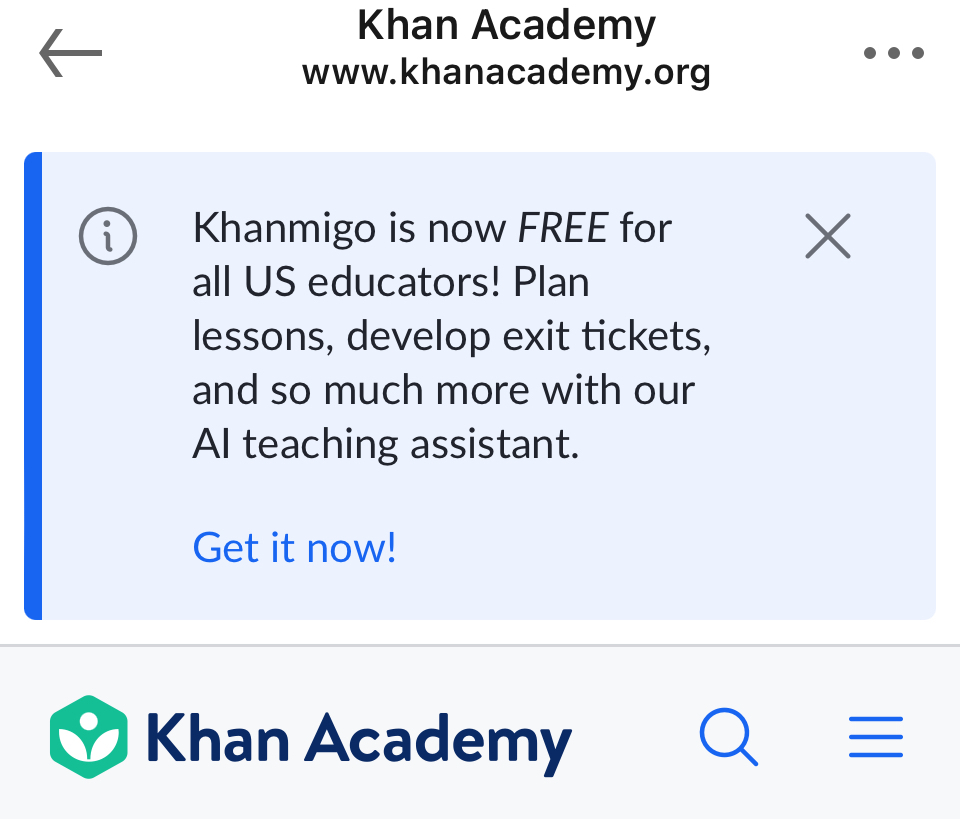
A brief overview of Microsoft and Khanmigo announcements, “Enhancing the future of education with Khan Academy” on the Microsoft Education Blog appears below.
Get Free Access U.S. Teachers
AI Summary of Article
LinkShare: OpenAI Teaching with AI Guide #AI #tcea #tceajmg
Not sure how I missed this OpenAI Teaching with AI Guide:
…a guide for teachers using ChatGPT in their classroom—including suggested prompts, an explanation of how ChatGPT works and its limitations, the efficacy of AI detectors, and bias.
You can find additional resources here.